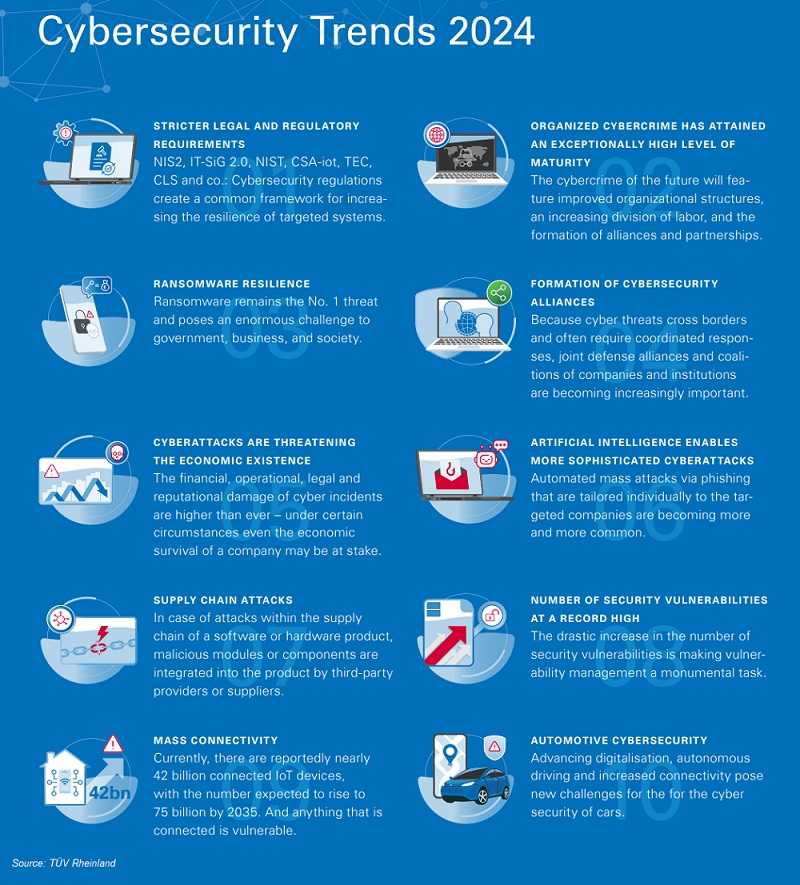It’s a new year! And while everyone will face new cyber risks going forward, it makes it more important than ever for individuals to assume responsibility for safeguarding their devices and data. Threats stay the same, but they also evolve to become more dangerous, and new ones pop up like the cork off a champagne bottle. Protecting yourself from all of this begins with education and heeding the advice of cybersecurity experts. While we all think we know all of this already, anyone can become a victim of cybercrime when the circumstances are right. So, it’s important to stay on top of it, no matter how much of an expert you are, and keep in mind these tried-and-true tips.
1. Employ Robust Passwords and Passphrases: Utilize strong, unique passwords or passphrases for all your online accounts. This means using special characters, upper- and lower-case letters, as well as numbers.
2. Keep Passwords Confidential: Never share your passwords or PINs with anyone, regardless of their requests. This means not giving them to anyone in a technical support role. They don’t need it.
3. Recognize Phishing Emails: Educate yourself on identifying phishing email messages and avoid opening suspicious attachments or clicking on dubious links. The old clues of blurred graphics, misspellings, and improper grammar still apply, but it’s getting more difficult to detect these. Also, ignore unexpected attachments and links or ones that come from unknown senders.
4. Regularly Monitor Financial Activity: Routinely check your payment card and credit reports for any unauthorized or suspicious transactions. Freeze your credit reports, if you won’t need access to them. If you suspect fraud, contact your financial institution immediately.
5. Enable Two-Factor Authentication (2FA): Whenever possible, activate two-factor authentication (aka multi-factor authentication or MFA) for accounts containing sensitive or financial information, such as banking and trading accounts. This is also advised for social media accounts.

6. Unique Login Credentials: Use distinct login IDs and passwords for each online account to enhance security. Never use an account such as Facebook or Google to log into other accounts.
7. Install and Update Anti-Malware Software: Install reputable anti-malware software on your internet-connected devices and ensure it stays up to date. Turn on auto-updates if possible.
8. Apply Software Patches and Updates: Promptly apply critical security patches and updates released by software vendors. This holds true for all of your devices, including IoT items. If your older devices are no longer supported, consider getting newer ones.
9. Regular Data Backups: Implement regular data backups and store them on a separate device or location from your primary computer or device.
10. Stay Informed About Scams: Continuously educate yourself about the latest scams and their indicators, as cyber threats can manifest in various forms, including emails, phone calls, and even at your doorstep.
It's crucial to understand that cybercriminals will persist in attempting to pilfer information as long as it remains a profitable endeavor. While government efforts aim to enhance overall cybersecurity, individuals must take proactive measures to protect their data, as the increasing interconnectivity with the digital realm exposes everyone to potential vulnerabilities.